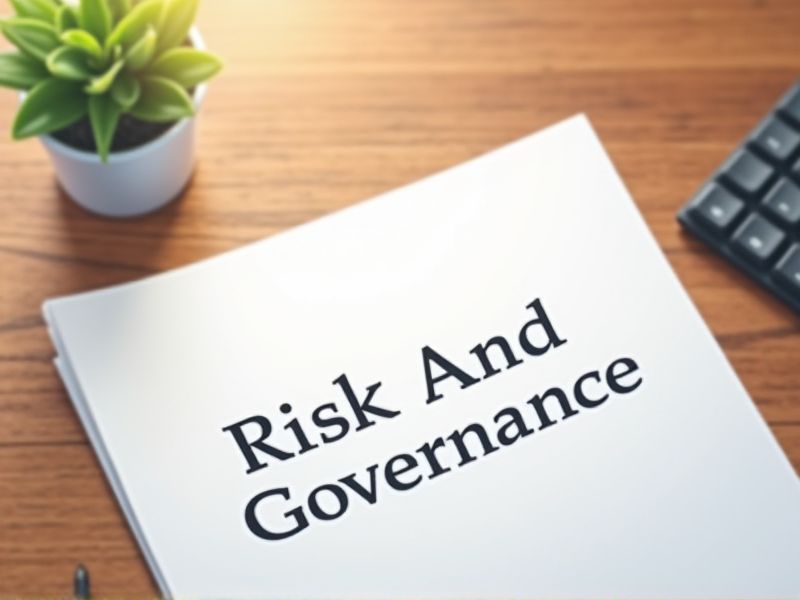
Risk and Governance Managers play a pivotal role in ensuring organizational stability by identifying risks and implementing governance frameworks. Certifications in this field provide specialized knowledge, validating expertise in compliance and risk management strategies. Possessing certifications often signals a commitment to best practices and a deeper understanding of regulatory standards. Here are key certifications that can enhance your qualifications as a Risk and Governance Manager.
Certified in Risk and Information Systems Control (CRISC)
Certification in Risk and Information Systems Control (CRISC) equips Risk and Governance Managers with a robust understanding of IT risk management, enhancing their ability to identify and assess organizational risks effectively. Enhanced risk management capabilities lead to improved strategic planning, helping organizations prevent financial and reputational damage. Knowledge gained from CRISC certification ensures compliance with industry regulations, which is essential for maintaining organizational integrity. Organizations recognizing CRISC credentials often see improved trust among stakeholders, bolstering investor and customer confidence.
Certified Information Security Manager (CISM)
A Risk and Governance Manager needs CISM certification because it provides comprehensive knowledge of information risk management, crucial for assessing potential security threats. The certification enhances the manager's ability to develop strong security policies, aligning with an organization's governance frameworks. CISM equips managers with skills to effectively communicate risk-related issues to executives, ensuring informed decision-making. The credential signifies a commitment to adhere to the highest standards of information security management, which is essential for maintaining trust and compliance.
Certified in the Governance of Enterprise IT (CGEIT)
Certified in the Governance of Enterprise IT (CGEIT) equips Risk and Governance Managers with a formalized understanding of IT governance frameworks, ensuring alignment with business goals. This certification validates their ability to design and implement effective governance measures, mitigating potential risks tied to IT operations. With CGEIT, managers can contribute to strategic decision-making processes, enhancing organizational resilience. The credential signifies proficiency in driving value from IT investments, aligning with best practices and satisfying compliance demands.
Project Management Institute - Risk Management Professional (PMI-RMP)
Risk and Governance Managers are tasked with identifying and mitigating potential threats to business operations, so earning a PMI-RMP certification equips them with comprehensive risk management tools, enhancing their ability to predict and manage unforeseen challenges. This certification outlines global best practices, ensuring that managers apply standardized methods consistent with current industry standards. The specialized training enhances decision-making processes, enabling managers to prioritize risk effectively and align risks with an organization's strategic goals. Without PMI-RMP certification, managers may lack the globally recognized competency to manage risk efficiently, potentially leading to flawed governance and costly oversights.
Project Management Professional (PMP)
Project Management Professional (PMP) certification validates a comprehensive understanding of project management methodologies, which is critical for effectively identifying and assessing potential risks. Possessing PMP credentials enhances a manager's ability to implement structured frameworks, ensuring robust governance standards. With PMP training, managers can apply proven risk mitigation strategies, aligning with organizational goals efficiently. Holding a PMP certification signals industry-recognized expertise, increasing stakeholder confidence in a risk and governance manager's capabilities.
Certified Internal Auditor (CIA)
The Certified Internal Auditor (CIA) certification provides a comprehensive understanding of internal audit principles, thus enabling a Risk and Governance Manager to effectively identify and mitigate potential organizational risks. The structured CIA curriculum ensures that managers possess up-to-date knowledge on governance frameworks, crucial for maintaining compliance and enhancing organizational integrity. As the business environment evolves, a CIA-certified manager is better equipped to adapt organizational strategies to mitigate emerging risks. Evidence suggests that organizations led by CIA-certified professionals show improved risk management and governance outcomes, leading to enhanced decision-making processes.
Certified Risk Manager (CRM)
A Certified Risk Manager (CRM) brings specialized knowledge crucial for identifying potential risks in organizational processes. With a CRM's expertise, a Risk and Governance Manager can implement effective risk mitigation strategies, reducing potential financial losses. The certification ensures adherence to the latest industry standards and best practices, enhancing the organization's compliance. A CRM's involvement leads to informed decision-making, improving overall governance and operational resilience.
Certified in Risk Management Assurance (CRMA)
Certified in Risk Management Assurance (CRMA) enhances a Risk and Governance Manager's understanding of core risk management principles, directly aligning their role with industry standards. The certification provides in-depth knowledge, which ensures more effective oversight and integration of risk management practices across organizations. CRMA credential holders often have greater career prospects because they are recognized as experts in evaluating risks and governance processes. Companies tend to trust managers with a CRMA, as it indicates a rigorous commitment to maintaining and improving systematic risk assessment frameworks.
Certified Fraud Examiner (CFE)
A Certified Fraud Examiner (CFE) provides a deep understanding of fraud prevention, which enhances a Risk and Governance Manager's ability to protect organizational assets. Fraud knowledge informs risk assessments, enabling accurate identification and mitigation strategies for potential vulnerabilities. Expertise in fraud detection allows the manager to implement stronger internal controls, reducing the risk of financial losses. CFE credentials support improved compliance with regulations, fostering trust and integrity in corporate governance.
Certified Regulatory Compliance Manager (CRCM)
Risk and Governance Managers face increasingly complex regulatory environments that demand a sophisticated understanding of compliance requirements. Earning a Certified Regulatory Compliance Manager (CRCM) designation equips managers with essential skills to design and implement effective compliance programs. This certification ensures managers can accurately assess and mitigate risks associated with non-compliance in their organizations. Consistent application of CRCM knowledge helps in maintaining organizational integrity and avoiding costly legal penalties.
Summary
When you earn certifications as a Risk and Governance Manager, your credibility and expertise in the field significantly increase. This enhanced credibility often leads to more opportunities for career advancement and expanded professional networks. Your employer benefits from improved risk management strategies and governance frameworks, potentially reducing organizational risks. Certification can result in higher earning potential and positions you as a valuable asset to your team.
